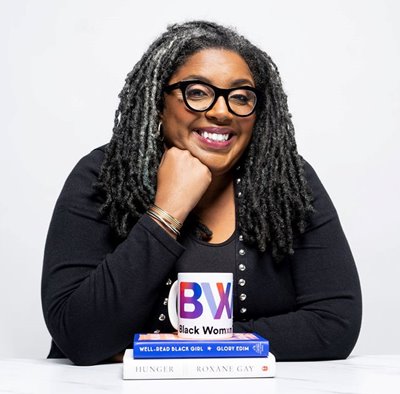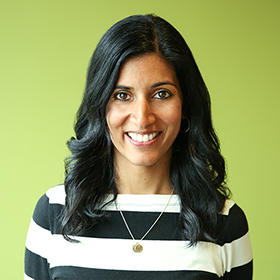What does it mean to create a truly supportive, equity-centered, and inclusive culture in the workplace—one where all individuals, and particularly Black women, thrive? Black Women Thriving, a new study of Black women in the workplace from Every Level Leadership, provides insights and recommendations for just that.
 Led by Ericka Hines, a diversity, equity, and inclusion expert, Every Level Leadership conducted a study of more than 1,400 Black cisgender and transgender women and gender-expansive professionals. Survey questions and small focus groups examined job-related factors like promotion, compensation, access to opportunities, workplace satisfaction, burnout, belonging, and connectedness and trust with work colleagues.
Led by Ericka Hines, a diversity, equity, and inclusion expert, Every Level Leadership conducted a study of more than 1,400 Black cisgender and transgender women and gender-expansive professionals. Survey questions and small focus groups examined job-related factors like promotion, compensation, access to opportunities, workplace satisfaction, burnout, belonging, and connectedness and trust with work colleagues.
Among the resulting report’s recommendations: opportunities for childcare and flexible working hours are structural factors that promote thriving for Black women. In addition, organizations can take steps to create a climate where Black women can share perspectives honestly, while, at the same time, providing access to professional development opportunities, mentorship, and pathways to leadership within their organizations.
For this issue of the newsletter, Meera Chary, a Bridgespan partner and head of Bridgespan’s Leadership Accelerator program, spoke with Hines about the report.
Meera Chary: Can you talk a little bit about what led you to conceptualize this research in this way?
Ericka Hines: My passion and interest are based on both my lived experience of being a Black woman and being a DEI practitioner—but this concept was also based on this intellectual question that I had around, "If you have the title and you have the money, but you're still unhappy, what's missing?" That question, the question of what was missing, was one I wanted to explore.
The other thing that led me to it was a very common observation I heard from so many Black women: "I feel like all I'm doing at work is surviving.” I don't know what that is. I want to actually ask the inverse of that question and say, “What would thriving look like in the workplace for Black women?"
I love that—the different elements of both your own personal and professional identity feeding into this research, and this intellectual question that felt answerable. I also appreciate this idea that if we look at Black women in our world, in our society, they are thriving in their lives, and there's so much joy and beauty and brilliance in Black women, and it's not translating to work. What does that disconnect mean to you?
I think the current response to “how can I thrive at work” is that I have this reservoir. I have to get all my thriving outside of work, and then I have to hope that little barrel of thriving gets me through the week. Then on the weekend I can go back to my barrel, fill it up, and use that to navigate through each day.
We're very conditioned to do that. But the disconnect, I think, is built upon the fact that we don't actually know what thriving looks like.
The factors we use to thrive outside of work actually shouldn't be the same factors that we're using to thrive inside work, and we shouldn't have to empty this well to make it through the workweek.
I thought you might say: “You can learn a little bit about what thriving means in the workplace from what thriving looks like outside of the workplace.” But what I hear you saying is we need to look at those things differently, and only in looking at those things differently can we understand what it takes to replenish the “work thriving” bucket.
Right. The operating definition that we relied on was one that came out of an academic article about socially embedding thriving into work. It talks about two factors: having a sense of vitality and feeling as though you're learning. But both of those need to exist, because people can feel like they're learning and hate it at work. Some might say, "I'm learning how to build an Excel spreadsheet.” Is that me thriving, or is that, I just have to learn this skill?
We wouldn’t put that in the thriving bucket. But then, if we consider the notion of “vitality”—it’s a sense of autonomy, it is a sense of belonging, there are other factors in there. It looks different from what it means to thrive outside [of work]. Some things cross over, like taking care of yourself, but there are some very specific workplace-related factors that contribute uniquely to thriving at work.
In the report you dug into different elements—performance and compensation, a sense of belonging, et cetera—as areas where organizations can support Black women thriving in the workplace. What led to that list of initial elements?
We wanted to use what many consider to be traditional factors that contribute to how people feel about work—compensation, promotion, retention—because we knew that most folks would consider those. But then, the other elements were because we were talking about Black women. We wanted to look at topics that had to do with folks who are from underrepresented communities. So we said, "We need to ask about belonging. We need to ask about burnout," because the thinking was—and because my company does equity audits—we knew that we needed to disaggregate our data.
Yes, there's information on burnout, but I want to know about burnout for Black women, and how it's not leading to thriving. So, it was a combination of what are the traditional factors that people would consider to be thriving, and then what are these other factors that have to do with race and gender identity.
Of all the data you gathered across those different areas, were there one or two data points that were particularly surprising to you? And then on the flip side, were there one or two that were kind of like, “Yep, that's exactly what I expected?"
The data about promotions—the fact that of those who applied for promotions, only 50 percent receive the promotion they applied for—was surprising. But then looking at that data, and then seeing that Black women don't feel like they can even ask for promotions [just 34 percent reported feeling comfortable doing so], that was heartbreaking. That made me slam my fist down and say, "Meritocracy is a myth."
The other numbers I felt were hard to see were the idea of connectedness and trust among work colleagues, and the fact that not one of the questions about feeling a sense of affiliation or connectedness had over 40 or 50 percent of women responding in the affirmative. If you connect that to the idea of feeling a sense of satisfaction or thriving at work, how can you if you feel like you don't have trust or you don't have connection or belonging? Even just taking the numbers aside—because these are real women who are answering these questions, with 100 stories behind each of these data points —what did that mean to you to see that?
We did the study and we did the focus groups immediately afterwards, so we didn't have actual data points yet. When they came together, I really started to clearly understand how much we have asked Black women to navigate in corporate cultures that don't benefit them, and just how damaging I think that is to Black women—and not just to their psyche, but to their work.
One of our beliefs was that … if we can center Black women and help Black women, then the tide for everyone rises. That’s loosely taken from a quote by Angela Davis. It was seeing these numbers around connectedness, seeing these numbers around belonging, listening to the focus groups, listening to the stories—and also having witnessed that as a Black woman myself, and hearing and seeing that in the trainings I had done—[it] made the current workplace feel like a stone, honestly, a weight we can't continue to ask Black women to carry. It is a broken system that needs to correct itself. When I decided that we were going to write these recommendations, we're going to direct them to organizations and say, "This is your responsibility," that decision felt very scary to me, but it felt like that is where we are in terms of doing inclusion work and doing equity work. It's now your responsibility, organizations.
I really appreciate that you included in your study LGBTQ women, transgender women, and gender-expansive women. The other surprising thing to me —which I think we wouldn't have seen if you hadn't included this data—is that everything you noted Black women were feeling was exacerbated for Black trans and LGBTQ women. I'm curious: is there anything you thought when you noticed that, or anything that, if you were to do the next version of this, you'd want to dig into?
As much as I didn't see data out there about Black women and thriving, there is zero data about Black women who are trans, and there's a little bit of data about LGBTQ, and again, zero data about gender-expansive folks. So I was like, "Well, we're going to ask those questions." I would love to partner with an organization or a philanthropy to use data that's out there, or gather more data, about trans and LGBTQ Black women.
Your data is cross-sector—but is there anything related to Black women thriving that is more promising in the nonprofit sector? Anything that is more insidious in the nonprofit sector?
In the focus groups, the Black women who said they were from nonprofits talked a lot about burnout. They also talked about gate-keeping by white women to move into leadership roles, to be very honest. They were like, "I've been committed to this work for X period of years. I've got the title, I've got the money, and I feel good about that." But a number of people said, "I'm leaving because I don't feel like I can grow anymore."
The other piece that was brought up was the disconnect that often exists in social sector organizations between the external commitment they have to inclusion and equity, and making that happen inside of their organizations. I know that from doing racial equity work with organizations, so when it came out I was like, "Check. Here it is, another example."
You ended your report with some great recommendations for what organizations can do to support Black women thriving—how would you help an organization get started?
My advice is always to start where you have momentum. If there's a particular area of these recommendations where you are already doing some work, start there and use that as the building block. Because we know that this work of diversity, equity, and inclusion, racial equity, racial justice, is incredibly tiring, and our organizations can get fatigued. So I'm always like, "Where do you have momentum and how do we build that momentum?"
Or, another place to start is, honestly, if you have a particular pain point, where you say, “If we don't do something about belonging or burnout, the number of people resigning is just going to exponentially grow”—that’s another place to start.
The point is to start somewhere—and once you do, you can start to feel like okay, we're doing something, learning from it, gaining momentum, and getting better.
Ericka Hines, principal of Every Level Leadership, is an advisor and strategist who works with organizations to align their commitment to inclusion and equity with their everyday actions and operations. To learn more, visit the Every Level Leads website or attend one of Ericka’s monthly briefings (visit the Every Level Leads events page to learn more and register).


